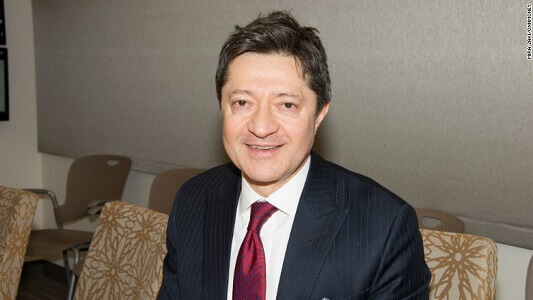
2016’s Most Innovative Hedge Fund Manager, UK
AIM is a UK-based asset manager, founded in 2008 by a long-standing team that had formerly managed $6 billion at UBS and $2 billion at Insight. We provide risk-based, inflation-beating solutions to institutional, retail and family office investors in ways that are transparent, cost-effective and liquid. These products are designed to achieve long-term capital appreciation through flexible and diversified asset allocation across all liquid global assets classes.
Our investment process is built upon a set of key beliefs:
1. An interaction of model-driven strategies with discretionary views as the key to long-term outperformance
2. Identifying strategic opportunities which • generate superior alpha by exploiting asset pricing anomalies
• achieve superior returns by harvesting riskpremia within ex-ante volatility bounds
3. Allocating between contrarian & trend following strategies and value-growth & carry investing within and across asset classes
4. Inflation as the ultimate destroyer of long-run purchasing power and real diversification as a key component of our investment style
The Hedge Fund Rebound of March 2016
The hedge fund rebound in March came after a terrible start to the years and during a month in which the MSCI World gained over 6% – so much for uncorrelated returns. What we seen time and again from the industry is a sort of whiplash, in which a somewhat reduced volatility in bear markets does not make up for the significant drag that being over-hedged during rallies brings to bear on longterm performance. Far from proving a vindication of hedge funds as a group, this continued underperformance of most of the industry we have seen recently allows for its top players to distinguish themselves from their peers.
It is in the difficult months preceding and following this rally from the bottom, and how managers dealt with risk in January’s rout and finding sources of return in the sideways markets since April, that we ought to look for the additional value that the top hedge fund managers can provide to investors. For us, particularly, deciding when to turn off our trendfollowing strategies, entering profitable relative value opportunities, and making discretionary thematic and hedging decisions around the lead-up to Brexit helped to generate returns in excess of 17% over the last five months.
Investment Philosophy and Successes
At the heart of our investment philosophy lies the belief that an interaction of quantitative with discretionary investment processes is the key to producing long-term outperformance. This means that on all levels, from considering the input of quantitative models in our asset allocation and strategy selection, to applying discretionary views to the output of our model-driven trading, there is a meeting of algorithmic methods with human common sense. This situates us in a niche amongst competitors who are usually either-or in their management style, and our consistent meeting of performance targets speaks for itself in the question of how our company stands out from the rest.
Our AIM Multi Asset fund has earned 17.6% for investors this year while achieving an annualised Sharpe Ratio of 2.5 to-date. This has come during a period in which global equity indices have grown on average by about two percent and most hedge funds have fared even worse. In fact, our consistent outperformance now has us beating the MSCI World Index over one, three and five years in not only riskadjusted but absolute returns, with AIM up by over 117% since inception in 2009.
Innovation in the Investment Community
AIM work closely with several universities supporting the quantitative research. The research paper we are currently working on is about (real time) forecasting of energy demand using data at different frequencies. This is done by model averaging and relying on different weighting techniques to select and average the forecasting models. The frequency ranges from ultra-high (5 minutes) to daily.
The data concerns the demand for energy produced from various sources including oil, wind, biomass, nuclear and hydro. Model averaging has shown to have a performance that is superior to that of individual models and also being often completely automated will also eliminate the uncertainty which arises from choosing inappropriate conditioning variables which would automatically be discarded in favour of those producing better in and out of sample forecasts.
Future Challenges
• The main challenge for the industry is the macro environment and finding the best ways to implement macro views.
• Macro strategies aim to forecast changes in macro – economic policies such as interest rates and inflation and are frequently driven by significant political events.
• The main themes in the current macro environment are: Brexit, Chinese slowdown, commodities recovery and the Federal Reserve’s interest rates hike.
Company: Armstrong Investment Managers
Name: Dr. Ana Armstrong
Email: ana.armstrong@
armstrongim.com
Web: www.armstrongim.com
Address: 26 Dover Streeet;
London W1W 5LY
Phone: +44(0)20 3409 6468





















